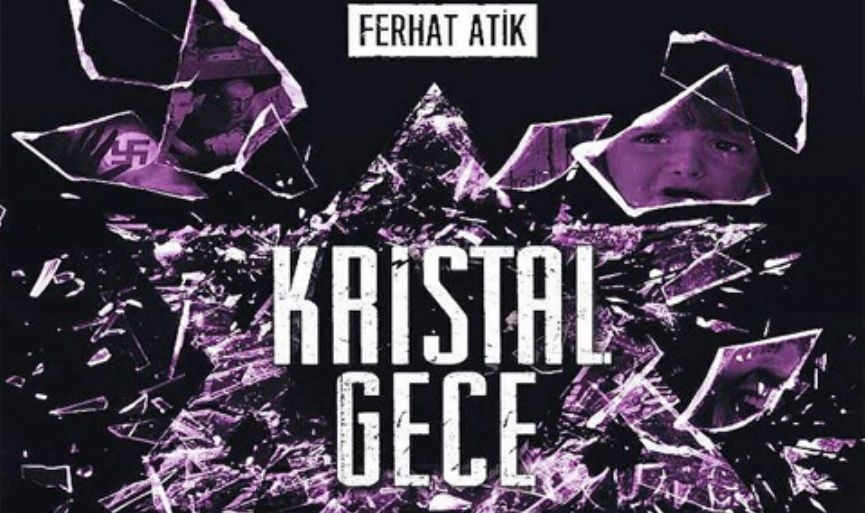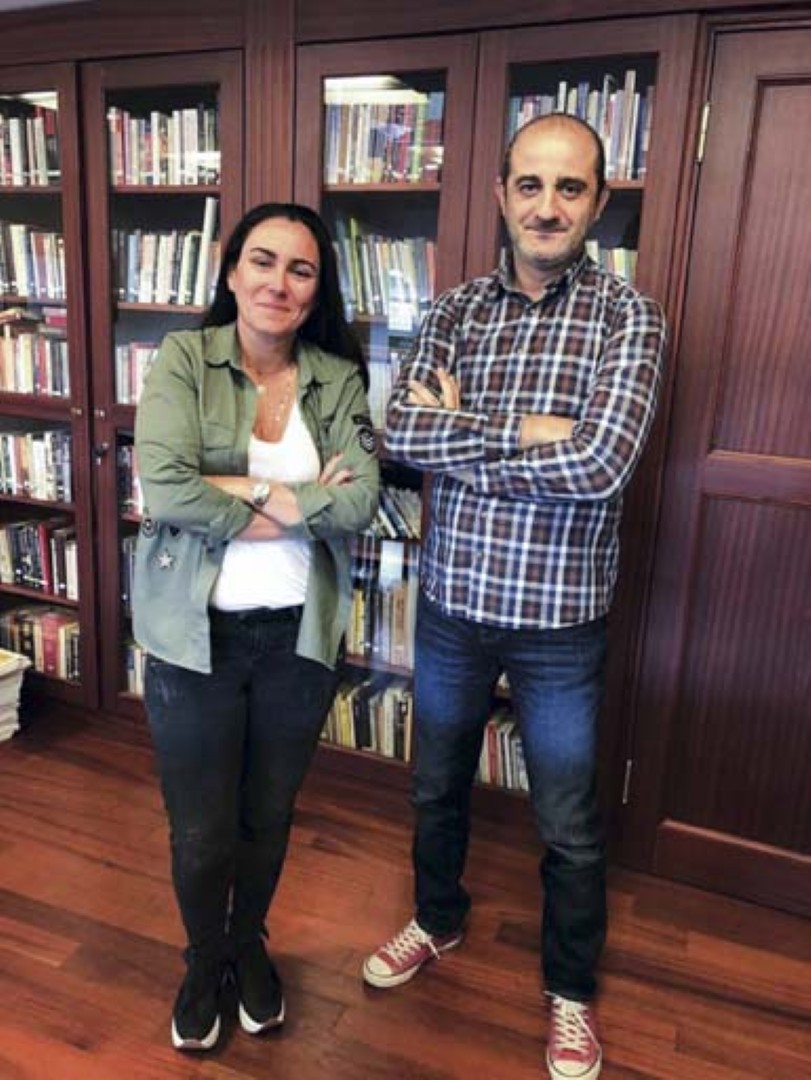
This barbarism that happened in the 20th century should always be remembered
Stating that the unforgettable pains and sufferings of Holocaust, the barbarism that left its mark in 20th century should always be remembered, Ferhat Atik wrote a book about the reality of Holocaust in his new book Crystal Night with a striking and bold tone. We talked with Salom writer Ferhat Atik about his latest novel and the two years of hard work he put in the process.
Do you remember when you first learned about Holocaust?
In my middle school years when I started getting curious about world history, I had a teacher who gave a lecture about Jewish community. He was a historian and he was very sensitive about these issues. The brief information I got from his lectures had always been intriguing for me even after I became an adult. I tried to comprehend the issue better by watching movies about it. After several years, at one of my trips abroad, I had the chance to have a chat with a Jewish man who was sitting next to me on the plane. His grandmother was a Holocaust survivor and her story touched me, deeply. As I got older, these information, these feelings and these true-life experiences accumulated.
Ultimately, when I started working with Prof. Dr. Vamık Volkan, I had the chance to dig deeper and study the individual and psychological aspects of the issue. That’s when I truly grasped the horrible sufferings and horridness of Holocaust’s reality.
Which factors played a role in writing a book about Holocaust?
When I learned the scope of Holocaust, I felt that it did not stay in the past. I felt that there is also a fear from future. Nobody can tell us that it won’t happen again. This is one of the most important reasons I wrote about Holocaust. With this book I aim to constantly remind everyone regardless of their faith, race or religion about Holocaust and to not let it ever happen again. This barbarism that happened in the 20th century should always be remembered. I believe this is the right way to prevent it from ever happening again. In this context, as a writer I thought I could contribute with a novel. In this field, I also would like to do different projects.
It is unconventional for a non-Jewish writer to write about Holocaust…How were the reactions, the feedbacks?
As a matter of fact, as Prof. Vamik Volkan noted in the foreword, people actually thought it was worthy and important that as a non-Jewish writer I wrote this book. I haven’t received any negative feedbacks. On the contrary, I’ve been receiving very positive feedbacks about the novel from non-Jewish readers. However, seeing that most of them heard the word “Holocaust” for the first time in their lives, made me sad. On the other hand, I’m happy to be the one to teach them.
Was the book’s development process difficult, challenging?
Before starting to write, I’ve worked on the preparation/development process for almost two years. During this period, American Holocaust Museum (USHM) was kind enough to provide me with all necessary information including relevant documents, photos and videos. The photos and the videos helped me apprehend the concept better. Chief Rabbinate of Turkey gave me information about the Jewish traditions and even gave me a list of names who lived at that time. I sincerely extend my gratitude to both institutions for all their help. To reflect my true emotions, I also talked to some of the Holocaust survivors. Even though it was excruciating for me to make them relive those horrific memories, they were extremely instrumental in the writing of this book. I’m not disclosing their names, but I want to thank them all from the bottom of my heart.
Your book is not very long, and it is an easy read. Without boring the readers, you convey historical facts. When were you most challenged?
Even though it’s been quite some time, the pain of Holocaust is still like as if it happened just yesterday. Writing about it like it is happening today is a grievous process. The most challenging thing was that the book was about the truth, the facts. Also, writing about the Jewish traditions and rituals were important. Thanks to Chief Rabbinate of Turkey, they provided me with all the necessary information, so I was accurate in my writing.
Salom writer Ferhat Atik is also an author, script-writer and a director.
He has over 50 research papers and scientific articles about media published both in Turkey and abroad. He had been the keynote speaker, guest speaker or moderator at over 50 conferences, seminars and workshops. He is the founder and board member of several NGO’s. He acted as a panel member/judge at various dissertation presentations, short film competitions and media competitions. In his line of work, he also gave lectures at several trainings and took on management positions. He gave lectures about script writing, novel writing and plaintext writing. Besides novels, he has written biographical fiction, poems and essays that were published.
Related Newsss ss










